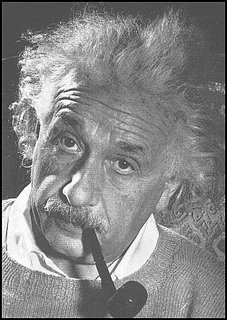American Lion - My review

I approached this book with some reservation because I was already aware of President Jackson's history regarding treatment of Native Americans and his stand on slavery. I did however come away with a few realizations - from a perspective that I had not previously known.
Jon Meacham detailed the changes that Jackson implemented regarding the Executive branch - his examples include;
1] Jackson's usage of the veto as a political tool coupled with his expansion of executive powers and establishment of the presidency as political force which did not exist prior to Jackson's tenure as President of the United States [POTUS],
2] being the first to completely replace his presidential cabinet thereby establishing that those members served at the pleasure of the president.
3] his introduction of legislation (Force Act) to affect change and to forecast his preparedness to act in the event someone intended to break up the union. In other words, threatening something extreme in order to get something generally perceived to be less benign.
4] his usage of executive branch to force policy change (Banks)
5] his usage of the media for fomenting his ideas and for advancing his agenda.
6] his reference to the voting populace as a mandate to implement his populist ideas - or perhaps, appealing to the masses in order to implement his agenda.
7] invoking the spoils system he was the first to dismiss federal office holders en masse.
Allowing for tempo-centric considerations regarding his bigotry, his fervent nationalism and passionate voice for the common (white) man, Meacham painted a fairly accurate picture of a man who, judged according to the prevailing sentiments of his times - and by people who shared a common Northern European heritage - he would have been a great man. His willful, obstinate, fiercely loyal nature served him well.
The Roman philosopher Herodotus said, "Soft lands breed soft men." Andrew Jackson is a good example for that axiom; he was, to be certain a tough man and the genteel world of the Washington of his time certainly proved to be a place where he could push his way around without much appreciable resistance. Perhaps the greatest nuance of his time was that he could get his way regardless of the opposition. It appears the opposition soon learned the value of having a medium (the printed press) in order to mount an effective opposition.
If any of this sounds at all familiar, I suspect it is because the author is looking back at the nineteenth century with his feet firmly planted in the 21st. Andrew Jackson's presidency seems to be quite familiar with the administration of President George W. Bush.
In short, it smacks of Rovian politics and, - to me - this is where Meacham fell short; he did not detail how such powerful nuanced re-interpretation of presidential power could have come from such an uneducated man. The constitutional law behind Jackson's vision is powerful and highly academic and yet, it seems he just had a great head for constitutional law. It makes me wonder whether it was in fact Martin VanBuren who was the brains behind the operation. We will never know from this book.
Unfortunately, the aberrant leanings president Jackson held, even during his time, were already proving to be distasteful in nineteenth century America. His deathbed statements regarding Heaven not being exclusively a realm for whites only indicates he was cognizant of the inherent injustice for slaves in the world he was living and preparing to leave shortly. Also, once the crisis of nullification had been averted the first time, President Jackson wrote about the potential role that slavery was certain to play in the future (six days before he would appoint an obscure country lawyer - Abraham Lincoln - to a low Federal Postal position in Illinois.)
Old Hickory predicted that slavery would eventually lead to a civil war. Unfortunately the president's prescient nature was accurate but he did not see himself as the instrument that would bring such an abomination to an end. While the book is an interesting read, I did not find it too cumbersome as others have alluded to. I also have a difficult time dismissing this account of his life as a 'white-wash' as other readers have contended. There are many accounts in the story which address the unfair treatment of Native Americans and his stand on slavery. For anyone to ignore that Andrew Jackson was an example of and a product of his time is to fall into the same tempo-centric trap that he fell into. Consequently, while slavery and Jackson's forbearance of long-standing treaties with the sovereign Indian nations were the order of his day - application of 2009 standards in retrospect are just as unmerited as the sins his modern-day critics are frowning upon.
To me there is a greater lesson to be garnered in looking back upon history; the wrongs can be reflected upon with an eye toward ensuring that such similar errors may be more easily understood and even avoided in the future. And, there are plenty of lessons to be learned. I could not help but notice the similarities of nationalism and invocation of populist themes in order to affect change as evidenced in our past presidential administration. It strikes me that the themes which resonated so strongly during the popular Jackson Administration were recently echoed by the Bush II reign as well. So too were the voices of opposition. This not to imply that bigotry exists towards at the same level today as in 19th century America however, there is no denying that similar shadows persist toward Latin American immigrants and Muslims in the paranoiac, post-9/11 America we live in today. The ultimate question in this or any democracy is whether majority rule trumps minority rights.
For my part, this was decent book and, while I would recommend it, it will not rank among the best books I have read. It is nonetheless, a pointed study about what happens when strong-minded personalities enter the office of president. It also demonstrates how fluid the description of the office can be and moreover, how mercurial personalities can effect the outcome of history - but, owing to contemporary experiences with our own presidencies of late, we already knew that.
Labels: Political History




0 Comments:
Post a Comment
<< Home